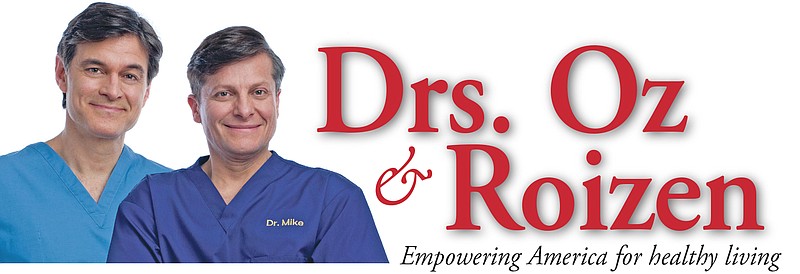Constipation - that is, having three or fewer bowel movements per week - is an urgent, if slow-moving, national problem. And it's getting worse. From 2006 to 2011 the number of constipation-related visits to an emergency room increased 41.5% - from 497,034 to 703,391 - and the cost for the health care hit more than a billion and a half dollars at $1,622,624,341. The number of visits moving through the medical pipeline has only increased since then, clogging up the ER more and more.
And it's not just older folks who have the problems (although it is common in about 30% of people over 60). There was an almost 51% increase in constipation emergencies among kids ages 1 to 17 from 2006 to 2011.
The underlying causes are varied, ranging from dehydration and overuse of laxatives to the increasing incidence of diabetes and obesity, the hyper-consumption of lousy foods (more than 60% of what most Americans eat is ultra-processed/stripped of fiber and nutrients) and, yes, the opioid epidemic (those drugs shut down the motility of your intestines). In fact, the problem is so common among folks who take those pain meds, both legally and illegally, that one of the high-priced, high-profile ads that aired during the 2016 Super Bowl was for a medication to treat opiate-induced constipation.
Chronic constipation also may be associated with medications other than opioids, such as antidepressants, antacids containing calcium or aluminum, iron pills, antihistamines, some blood pressure meds, psychiatric medications and some herbal supplements. In addition, it is associated with diseases such as irritable bowel syndrome, diabetes, Parkinson's disease, multiple sclerosis, gastrointestinal cancer, an underactive thyroid and diverticulitis (half of Americans over 60 get inflamed pouches called diverticuli in the lining of the intestine).
But whatever the cause, it becomes an emergency when it is accompanied by intense and/or constant abdominal pain, blood in the stool, and vomiting and bloating, which can indicate fecal impaction.
When impaction happens it's often necessary to have a doctor manually remove fecal matter from the lower intestine and then use an enema. If an impaction is not relieved, it can cause perforation of the colon, electrolyte imbalance, kidney problems, fecal incontinence, pressure ulcers, ulcers in the colon and rectal bleeding. Clearly the best remedy is to prevent constipation when possible.
Easy Does It
The first step to preventing constipation, or easing it before it becomes an emergency, is to make sure to stay hydrated. Colorectal surgeons at Dr. Mike's Cleveland Clinic advise four extra glasses of water a day (don't ever get thirsty - that means you're playing catch-up). Also smart: Eating a couple of prunes and/or bran cereal daily and asking your doctor about using fiber supplements, such as Metamucil.
It's also important to increase the intake of fibrous fruits and veggies (seven to nine servings a day), and make sure to have 30 to 60 minutes of moderate physical activity daily. People who exercise regularly generally don't have constipation, because when you ramp up your breathing and heart rate you stimulate contraction of your intestinal muscles, and that moves your stools through your gut more quickly. But don't exercise right after eating - it'll divert your blood flow from digestion to your heart and muscles. Wait an hour.
Don't forget about drinking coffee! For 30% of folks coffee (even decaf) stimulates a bowel movement within four minutes! Researchers think it's because it triggers the release of a hormone called cholecystokinin, which then triggers a reflex in your colon that sends your poo on its way.
Your move: It may seem embarrassing to talk about your bowel movements to your doctor, but gastrointestinal health is essential for maintaining your wellbeing. So, if you struggle with intermittent or chronic constipation, or any other gastro-related problems, such as diarrhea, cramping, bleeding, bloating or fecal incontinence, discuss the symptoms, get a diagnosis and find the solution. We know you have the guts for it!
Mehmet Oz, M.D. is host of "The Dr. Oz Show," and Mike Roizen, M.D. is Chief Wellness Officer and Chair of Wellness Institute at Cleveland Clinic. To live your healthiest, tune into "The Dr. Oz Show" or visit sharecare.com.
(c)2019 Michael Roizen, M.D. and Mehmet Oz, M.D.

